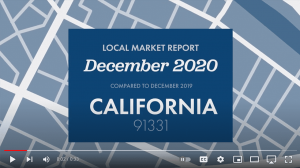In today’s digitally-driven world, having a professional and engaging online presence is a vital aspect of any real estate marketing strategy. A well-designed agent website serves as the cornerstone of your digital presence, offering a central platform for showcasing your expertise, listings, and services while providing visitors with valuable resources and insights that can help them navigate their real estate journey. As the hub of your online marketing efforts, your real estate agent website should be informative, visually appealing, and intuitively designed in order to attract visitors, engage potential clients, and ultimately drive conversions.
In this educational, informative, and comprehensive blog post, we will explore the essential elements of an impactful real estate agent website and provide practical tips and best practices for designing a site that not only stands out from the competition but also effectively supports your marketing goals and helps to grow your business. From captivating visuals and engaging content to cutting-edge functionality and user-friendly design, we will guide you through the process of building a powerful agent website that elevates your online marketing and reinforces your reputation as a leading real estate professional in your market.
At Zentap, our mission is to empower real estate professionals with innovative marketing solutions, including automated social posting, branded video content, local market updates, lead generation, and agent websites. By leveraging our advanced tools and expert guidance, you can create a comprehensive and effective real estate marketing strategy that propels your business growth, solidifies your position as an industry leader, and supports your continued success in the ever-evolving world of real estate.
Creating an Impactful Real Estate Agent Website: Tips and Best Practices
A well-designed real estate agent website is essential for capturing the attention of potential clients and showcasing your expertise and services. In this blog post, we will explore the crucial elements of an impactful agent website and provide guidance on how to create a visually appealing, informative, and user-friendly website that drives conversions and supports your business growth.
1. Engaging and Informative Content
The foundation of an effective real estate agent website is engaging and informative content that educates visitors while showcasing your expertise. Consider the following tips to develop impactful website content:
– Showcase Your Expertise: Highlight your experience, qualifications, and achievements, positioning yourself as a trusted expert in your local market and niche.
– Provide Valuable Resources: Offer helpful resources, such as guides for buyers and sellers, market updates, and local neighborhood profiles, to help visitors make informed decisions.
– Include Testimonials and Reviews: Showcase the positive experiences of past clients through testimonials, reviews, and case studies, underscoring your reputation as a reliable, results-driven agent.
– Maintain a Blog: Publish regular blog posts on relevant real estate topics, providing valuable insights and establishing yourself as a knowledgeable resource in the industry.
2. Visually Appealing Design and Aesthetics
An attractive and professional website design can help reinforce your brand identity and create a strong first impression on potential clients. Keep these design tips in mind:
– Consistent Branding: Utilize consistent branding, such as your logo, color scheme, and typography, throughout your website, creating a cohesive and polished presentation.
– High-Quality Visuals: Use high-quality images and visuals, showcasing your listings and local communities, to make your website visually engaging and memorable.
– Clean and Uncluttered Layout: Design your website using a clean and uncluttered layout, facilitating easy navigation and ensuring your content is presented clearly and effectively.
– Mobile Responsiveness: Opt for a responsive website design that adapts to different devices and screen sizes, ensuring a seamless user experience for all visitors.
3. User-Friendly Functionality and Navigation
Intuitive functionality and ease of navigation are critical components of a user-friendly real estate agent website. Implement these strategies to enhance user experience:
– Clear and Accessible Navigation: Provide clear and accessible navigation options, such as a menu bar and sitemap, to help visitors quickly locate and access the content they seek.
– Property Search Features: Integrate user-friendly property search features, such as customizable search filters and interactive maps, to help potential clients easily find their ideal homes.
– Lead Capture Forms: Incorporate strategically placed lead capture forms and CTAs (Calls to Action) throughout your website, encouraging visitors to contact you or sign up for your mailing list.
– Fast Page Load Times: Optimize your website for fast page load times by compressing images, reducing the use of heavy scripts, and optimizing server performance. This boosts both user experience and search engine rankings.
4. Search Engine Optimization (SEO) and Analytics
Implementing effective SEO strategies and monitoring website performance are essential for driving organic traffic to your site and continuously refining your online presence. Consider the following SEO and analytics tips:
– Keyword Research: Conduct keyword research to identify the most relevant keywords and phrases for your target audience, incorporating them into your content, meta tags, and alt text.
– URL Structure: Opt for clean and descriptive URLs that accurately represent the content of each page while incorporating target keywords, improving search engine indexing and readability.
– Content Optimization: Optimize your written content, including headings, subheadings, and meta tags, with relevant keywords, ensuring your site is easily discoverable by search engines.
– Monitor Website Performance: Use tools like Google Analytics and Search Console to regularly monitor your website’s performance, evaluating engagement metrics and identifying areas for improvement.
Conclusion
Designing an engaging and impactful real estate agent website is crucial for capturing the attention of potential clients, showcasing your expertise, and driving conversions. By focusing on engaging content, visually appealing design, user-friendly functionality, and effective SEO strategies, you can create a successful online platform that elevates your marketing efforts and fuels your business growth.
At Zentap, we are dedicated to providing real estate professionals with cutting-edge marketing solutions, including automated social posting, branded video content, local market updates, lead generation, and agent websites. By leveraging our advanced tools and expert guidance, you can create a powerful real estate marketing strategy that propels your business growth and solidifies your position as a leader in the competitive world of real estate.

 Login
Login




